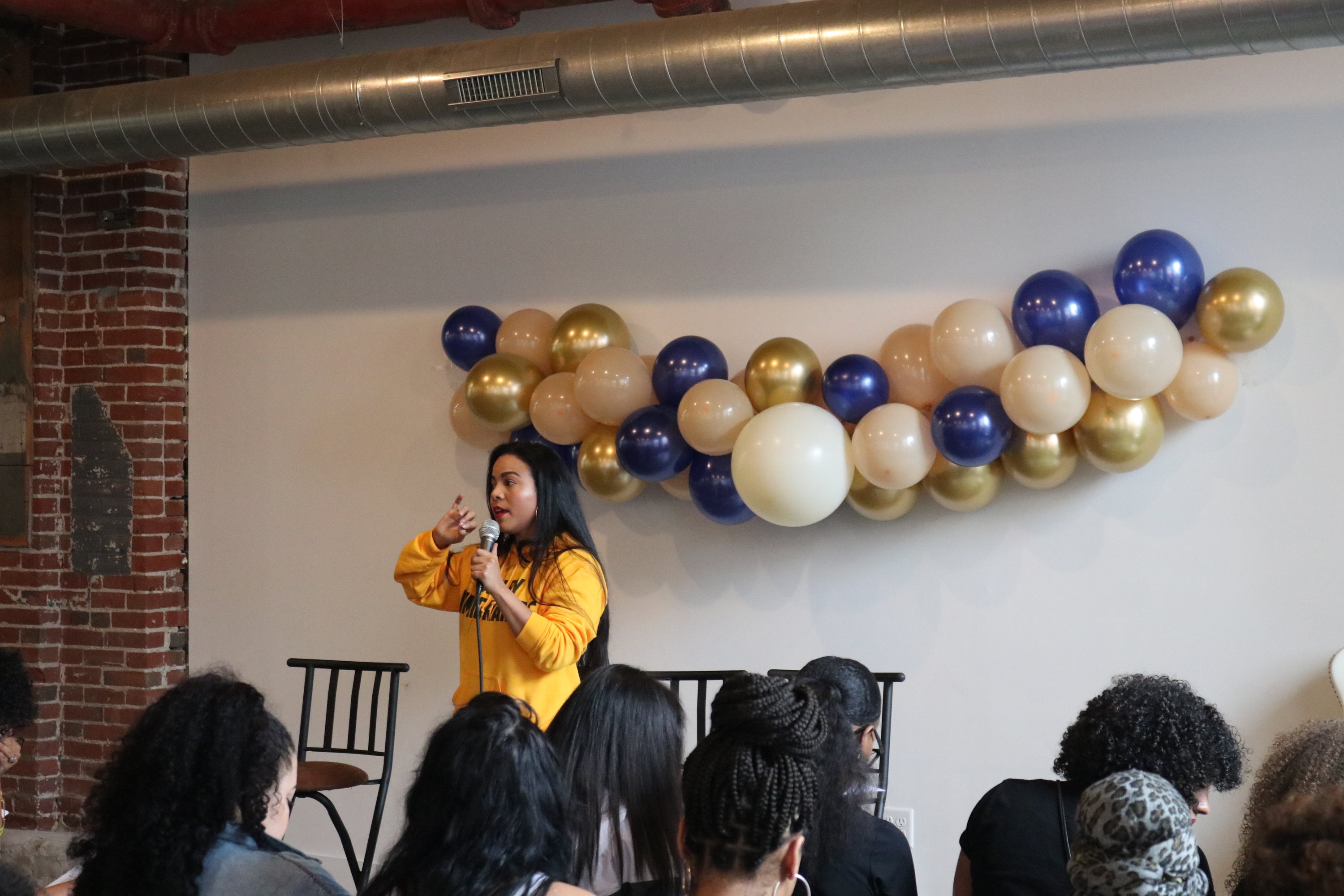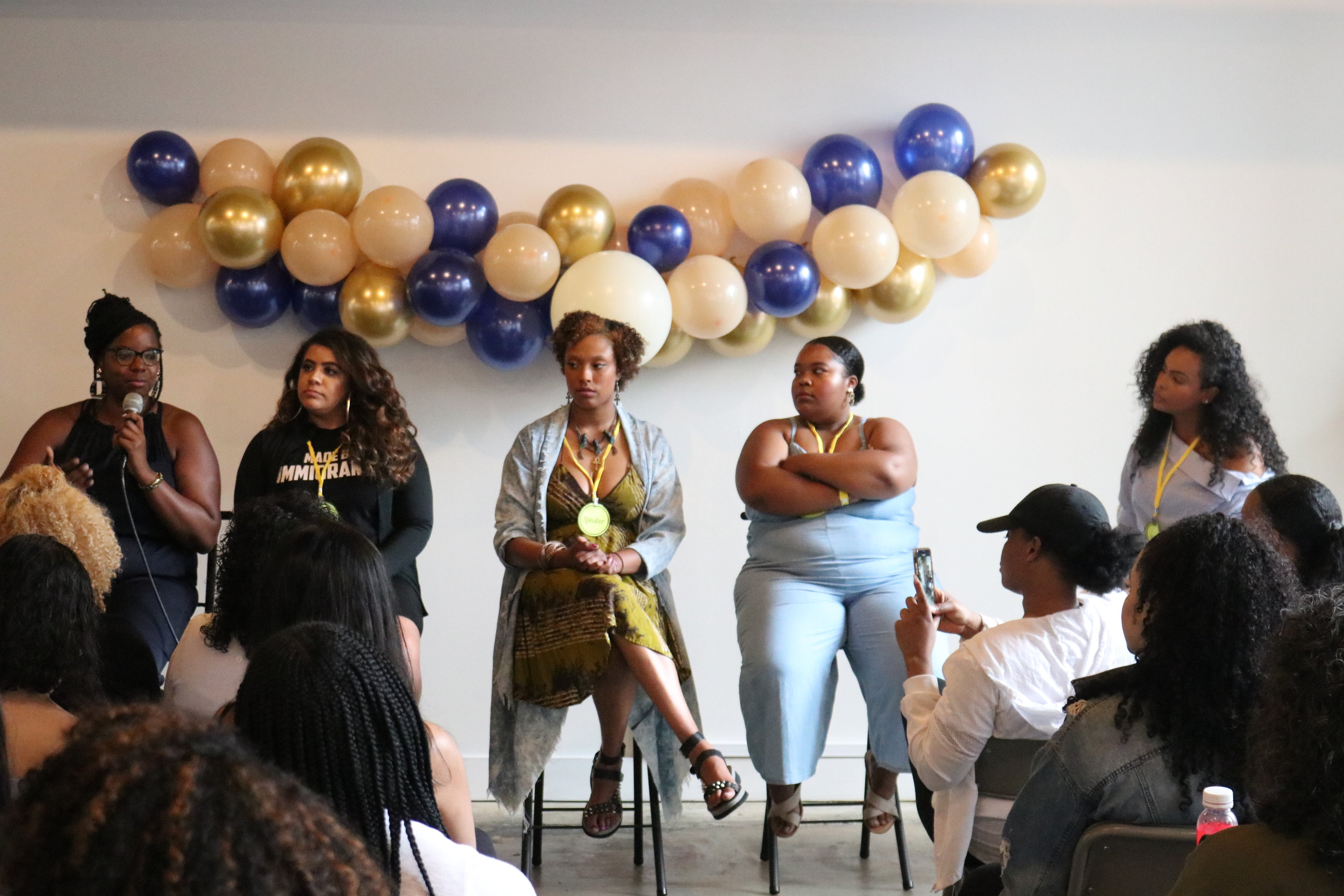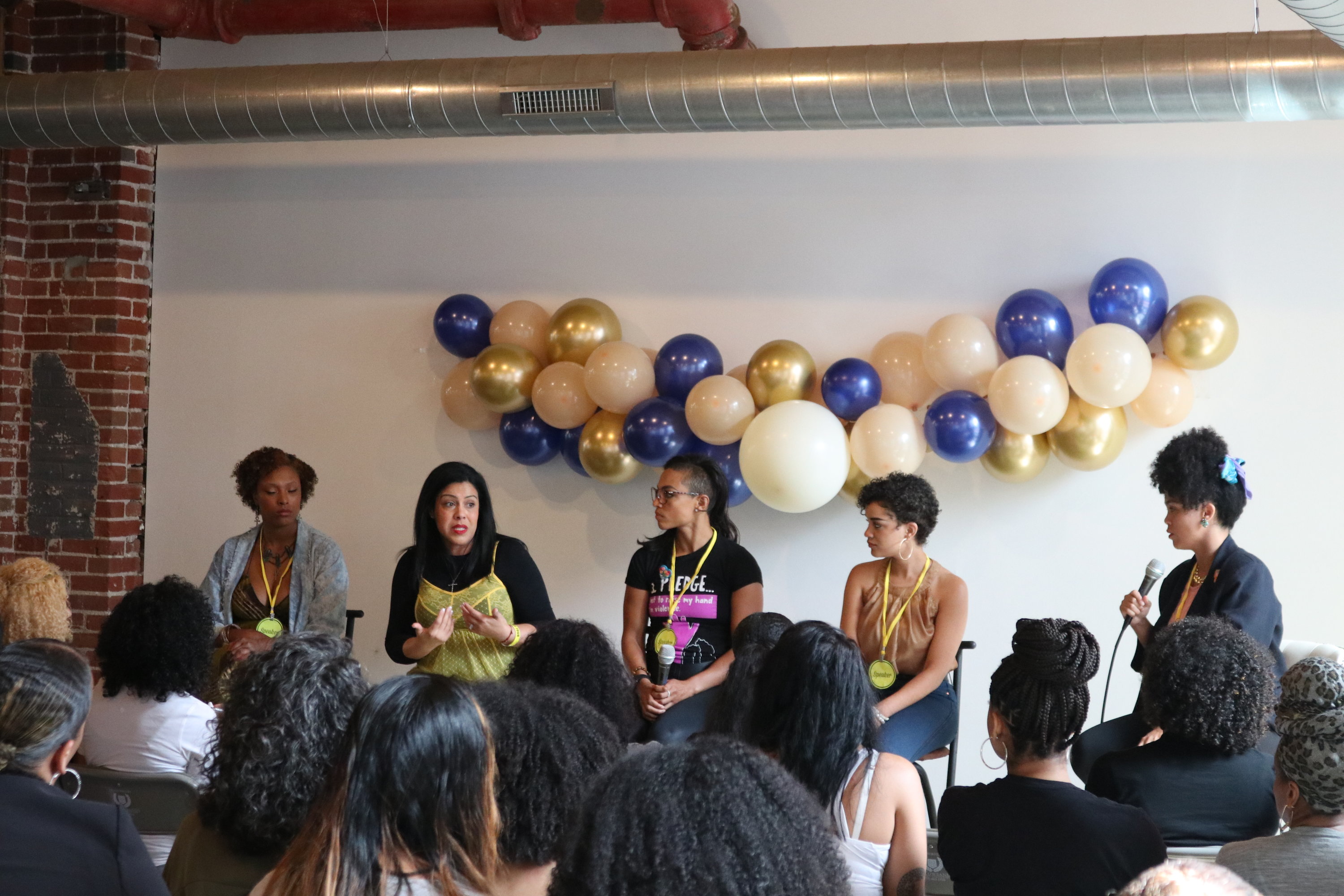
Glow Wellness Tour in Philly: Promoting health and wellness for Latinas, women of color
Women of color can show a level of support and community among each other unlike any other—the Glow Wellness Tour shows exactly that.
Candy Calderón created the Glow Wellness Tour after attending countless other wellness events over the years, in which she realized that many of them were created without women of color in mind. Therefore, she felt she simply couldn't relate.
"I created the Glow Wellness Tour to address the specific needs and challenges of women of color," said Calderón. "because for the longest time, we’ve been neglected, and it’s due time that we created something for us and by us."
After previous stops in New York City, the Glow Wellness Tour came to Philadelphia on Sat., June 8.
“I knew that we needed this,” Calderón said of bringing the Glow Wellness Tour to her "City of Brotherly Love" hometown. "We have so much in the city, the city’s so beautiful, it’s so welcoming, but at the same time, I felt that we still were lacking in the diversity and inclusion when it comes to wellness in women.”
This event functioned as a way to address this lack of diversity and inclusion in wellness, particularly for women of color.
Throughout the duration of the event, four groups of panelists comprised of strong, powerful, inspiring women of color each shared their personal stories and experiences, as well as tips that went towards their journey of overcoming those challenges—challenges that impact their community. The four main topics were holistic health & wellness; mental health & body positivity; destigmatizing abuse; and finding your spiritual self.
Often when we think of the concept of wellness, it's often from a thin lens of physical activity. While physical activity is important, wellness encompasses so much more.
As a certified holistic nutrition and wellness coach, Calderón fully believes that health and wellness must be addressed from a holistic approach, particularly regarding nutrition "because it's the first step we can control."
We can control our diet, but there are other components of health and wellness that isn't as easily controlled.
The first panel of the event—focused on health & wellness and decolonizing your diet—highlighted this dynamic.
Moderated by Calderón, the panel consisted of fitness model and health coach Fabiana Ferrarini, health & fitness coach and personal trainer Diva Richards, and chef Christina Martinez.
Through the work these women do in their respective fields, they were able to provide the valuable information needs to address the many factors that can lead to poor nutrition habits.
"The energy around you and the things that are happening in your life affect your body in such a crucial way," Richards said.
The women agreed that relationships and personal situations play a critical role in how an individual addresses their health and wellness.
"If you surround yourself with negativity each and every day, you're going to be sucked into all that," said Ferrarini. "It's very hard to pull yourself away from that because you become so accustomed to it, and you think that's your day-to-day... so your relationships, who you surround yourself with is one of the major factors."
Nutrition often starts with how the individual is feeling, so one of the first steps in taking a holistic approach towards the health and wellness of the body is by being mindful of that connection.
Tips for taking a holistic approach:
- Building a good relationship with your food intakes
- Taking simple steps towards nutrition
- Incorporating more fruits, vegetables, and water
- Reading food labels and ingredients
- Cutting out sugar and processed foods
- Implementing more fiber
- Journaling what you eat

Just as important as our physical health is the health of our mind. For women of color of diverse backgrounds, conversations about mental health is almost non-existent.
"When we're talking about seeking help, even less," said Calderón. Getting advice, such as, 'Get over it,' or 'Just pray on it' creates a burden on the community that often makes it difficult for women of color to discuss their mental health challenges.
The second panel of the event provided the space to have that conversation and move towards eradicating the stigma surrounding mental health.
Moderated by social media producer and director Laiza Montanez, the panel also focused on body positivity, emotional distress, and how to get over self-love hurdles. The other panelists were entrepreneur & executive director Kiera Smalls, director of promotions & entrepreneur Delilah Dee, psychotherapist and activist Kim Ashby, and blogger, content producer & digital marketer Amber Burns.
Each panelist shared their personal experiences with mental health challenges, and how being a woman of color impacted their healing journey.
For communities of color, much of the depression, anxiety and emotional distress is rooted in the generations of trauma and oppression these communities has had to endure, and the lack of open conversations about mental health dates back to this idea of just simply enduring it silently.
Around the time Ashby was beginning to figure out that she wanted to be a therapist, she also initially had beliefs that she should be the last person to enter this field. However, she came to realize how her own challenges could impact her work.
"I really found that I have a lot of strength and a lot of power in the fact that I've had some of these experiences, and it allows me to empathize with people going through mental health struggles to a much deeper and greater degree, because I have those experiences," she said.
"When it comes to being a black woman, I recognize that I am at the intersection of so many forms of oppression," she added. "Part of liberation for me is really trying to support my mental health in those contexts, and trying to thrive and grow... despite those challenges."
The process of mental healing is an everyday endeavor, and perhaps the most effective way to address a mental health challenge is to acknowledge that it exists, try to understand what exactly the challenge is, be unafraid to seek help, and work towards the healing process.
"Sit down with yourself, understand who you are as a person, and try to work... on what you can fix," said Dee, as a piece of advice. "And don't be afraid to talk to people."
"When we're in these dark spaces, we feel like we're alone, but we're not."

Domestic and sexual violence can play a big role in hurting an individual's mental and emotional health.
The third panel focused on destigmatizing abuse, and was moderated by Yaya Rivera. The panelists consisted of author & entrepreneur Vanessa Coppes, sexual violence advocate Benzii Diaz, advocate for women against abuse & professional MMA fighter Jamie Colleen, and therapist Kim Ashby. All of which are women who are domestic and sexual abuse survivors, working towards legislation and services aimed at destigmatizing the
CONTENIDO RELACIONADO
According to the National Coalition Against Domestic Violence, on average, nearly 20 people per minute are physically abused by an intimate partner in the United States. This equates to nearly 10 million people abused each year.
Part of the reason the numbers are so high is due to a lack of transparency in the situation.
"Too often we [as a society] feel that transparency is a sign of weakness," said Rivera. "In reality, it's a sign of strength."
These traumatic experiences caused a lot of hardship for these survivors, as adjectives such as "damaged, "broken", "isolated", "angry", and "lost" were used to describe how those abusive experiences made them feel.
In the state of Pennsylvania, victims who are over the age of 18 at the time the abuse have just two years to report a civil case, whereas a victim under the age of 18 at the time of the abuse have up to 12 years after their 18th birthday to file a civil case.
For the past few years, Diaz has worked with state legislators in an effort to abolish this statute of limitations.
"I'm fighting for those women who have been abused, who are afraid to come out and say 'I have been abused,' and I am seeking justice," she said. "As Latinas, or people of color, we do not have that forefront, that strong foundation. And that's what we need to create."
Victims of domestic or sexual abuse are not the ones at fault. However, society can conceive the idea that it is, which can affect future relationships with others. However, forgiving the abuser can go a long way towards overcoming the trauma that comes with their experiences.
"I think that's there's a difference in fault versus responsibility," said Colleen. "It might not be your fault that something happened to you, but it is your responsibility to take your power back and to move forward with your life in a healthy way."
"Once you let go of all the negativity, then you won't bring it into your next relationship, and you can sort of have a clean slate and start fresh," she added.

Spirituality is a fairly broad concept, with many different interpretations—different from religion.
The fourth and final panel, moderated by Calderón, and featured panelists Chanel Manicato, Imani Christina, Nathalie Farfan, and Neelou Malekpour, highlighted how an individual can explore their spiritual self.
Harnessing your energy can help heal the various mental, physical, and emotional challenges an individual may face.
The panelists all shared their personal approaches towards this, and how they help others to do the same.

The Glow Wellness Tour event in Philadelphia showed just how interconnected our daily endeavors and interactions are, and how impactful these situations are to our overall health and wellness. Women of color endure challenges that most other communities often don't have to face. This dynamic makes an event like this much more crucial to have—to show unity and support for one another. More wellness events where women of color can sit and talk about the challenges they face and their needs can become one of the most effective ways to strengthen the community and show just how impactful and influential they are.
[node:field_slideshow]
The next stop of the Glow Wellness Tour will be announced soon!










DEJE UN COMENTARIO: